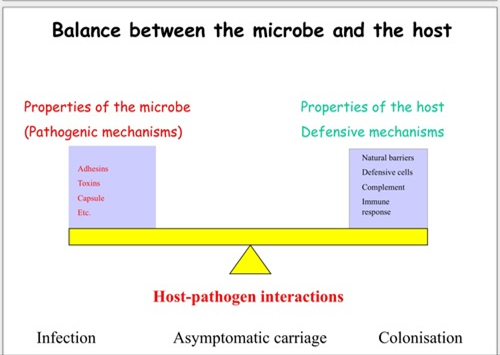Which of the following is an accurate description of a type-1 hypersensitivity reaction?
Most type-1 reactions are allergic
It is mediated by IgA.
It never contributes to autoimmune diseases.
Most occur against medications
The Correct Answer is A
A. Most type-1 reactions are allergic: This statement is accurate. Type-1 hypersensitivity reactions are typically associated with allergies. When a person is exposed to a specific allergen (like pollen or certain foods), their immune system overreacts, leading to various symptoms, from mild to severe.
B. It is mediated by IgA: This statement is incorrect. Type-1 hypersensitivity reactions are primarily mediated by immunoglobulin E (IgE) antibodies. When these antibodies bind to allergens, they trigger the release of histamine and other chemicals, causing allergic symptoms.
C. It never contributes to autoimmune diseases: This statement is incorrect. While type-1 hypersensitivity reactions are often associated with allergies, they are distinct from autoimmune diseases. In autoimmune diseases, the immune system mistakenly attacks the body's own cells and tissues, which is a different mechanism from hypersensitivity reactions.
D. Most occur against medications: This statement is not entirely accurate. While some type-1 hypersensitivity reactions can be triggered by medications (like penicillin), they can also be caused by various other allergens such as pollen, animal dander, insect venom, and certain foods. The prevalence of medication-induced type-1 reactions varies, and it's not accurate to say that most occur against medications.
Nursing Test Bank
Naxlex Comprehensive Predictor Exams
Related Questions
Correct Answer is ["A","B","C","D"]
Explanation
A. Viral Latency: Some viruses, like herpesviruses, can enter a latent phase where they hide in host cells, making it challenging for the immune system to detect and target them.
B. Host Defense Failure: This term encompasses situations where the host's defense mechanisms, including physical barriers and immune responses, are not effective in preventing or controlling infection. For example, pathogens may develop mechanisms to evade detection by the immune system.
C. Immunosuppression: Pathogens can actively suppress the host's immune response. They may produce molecules or proteins that inhibit the immune system's ability to mount an effective defense.
D. Immunodeficiency: Individuals with immunodeficiency disorders have weakened immune systems, which can be congenital (genetic) or acquired. This weakness makes them more susceptible to infections.

Correct Answer is C
Explanation
A. Delayed hypersensitivity reaction: This type of hypersensitivity reaction, also known as Type IV hypersensitivity, involves a delayed response by the immune system and is mediated by T cells. It does not necessarily involve a failure of self-tolerance.
B. Antibody-mediated reaction: This type of hypersensitivity reaction, also known as Type II hypersensitivity, involves antibodies targeting specific antigens on cell surfaces, leading to cell destruction. It doesn't directly indicate a failure of self-tolerance but rather an immune response against specific cells or tissues.
C. Autoimmune reaction: In autoimmune reactions, the immune system fails to recognize certain body tissues or substances as "self," leading to an immune response against the body's own cells or tissues. This results from a breakdown in self-tolerance, where the immune system mistakenly targets its own body.
D. Immediate hypersensitivity reaction: This type of hypersensitivity reaction, also known as Type I hypersensitivity, involves an immediate response by the immune system to an allergen. It includes conditions like allergies and anaphylaxis, where the immune system reacts strongly to substances that are normally harmless. This response does not necessarily indicate a failure of self-tolerance but rather an exaggerated response to specific antigens.
Whether you are a student looking to ace your exams or a practicing nurse seeking to enhance your expertise , our nursing education contents will empower you with the confidence and competence to make a difference in the lives of patients and become a respected leader in the healthcare field.
Visit Naxlex, invest in your future and unlock endless possibilities with our unparalleled nursing education contents today
Report Wrong Answer on the Current Question
Do you disagree with the answer? If yes, what is your expected answer? Explain.
Kindly be descriptive with the issue you are facing.
